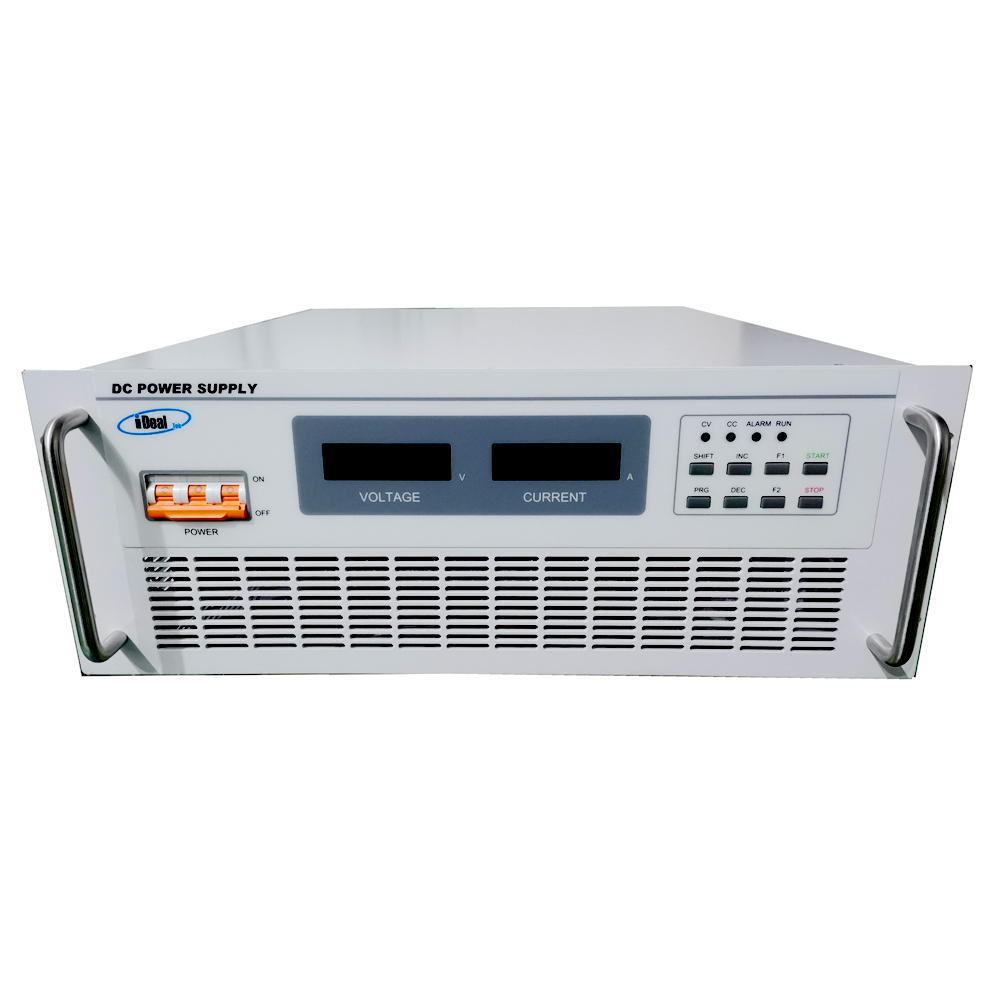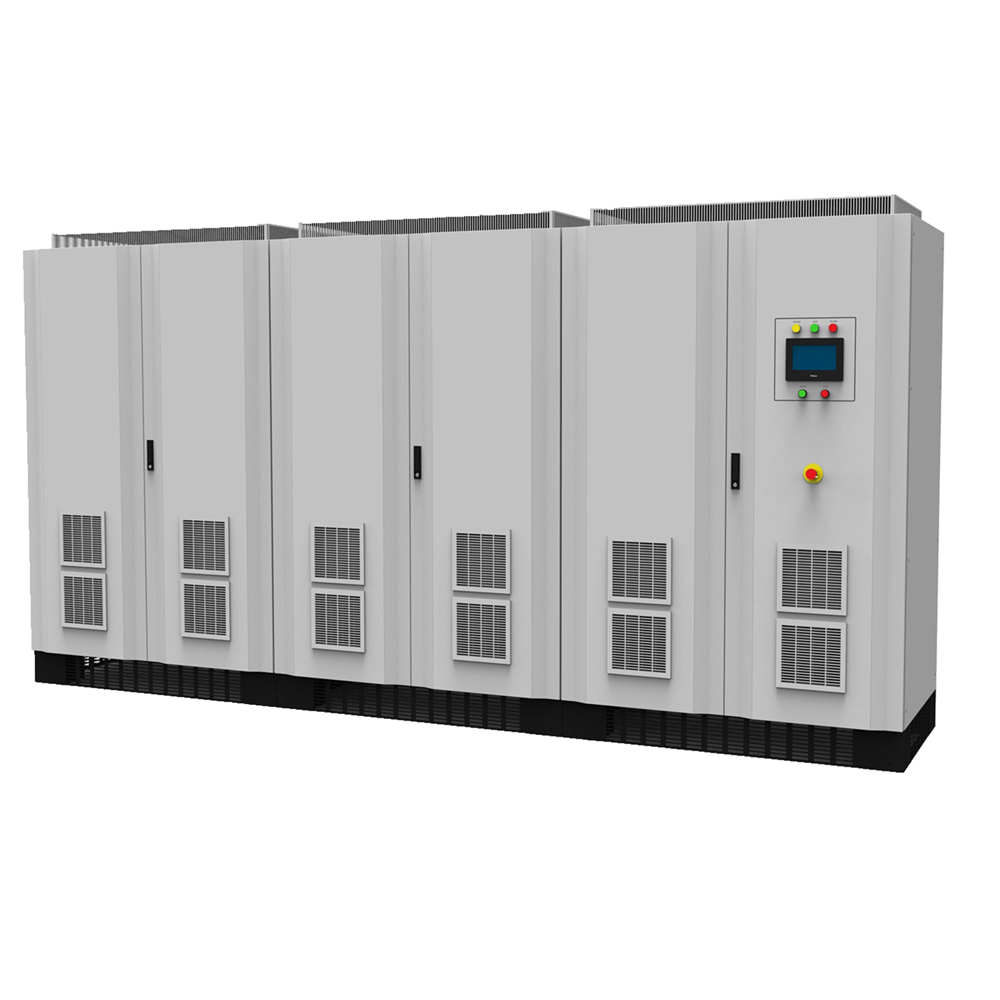The MTP series DC Power Supplies are High Power DC power supplies developed by iDealTek-Electronics based on IGBT semiconductor components, adopting AC/DC power processing topology with full-bridge phase-shift soft-switching technology. This series of High-power DC power supplies have the most output models and the widest output range in the company's DC power supply series, from 3KW ~ 30KW integrated in 19-inch standard rack-mounted high-precision DC power supplies to 45KW ~ 2000KW with casters or floor-standing Cabinet type High Power DC power supplies, output voltage up to 2000VDC, output current up to 6000A.
High-power DC Power Supplies, High Power AC - DC Supplies, High-power Switching Power Supplies, High-power AC DC Supplies, High-power Power Supplies Yangzhou IdealTek Electronics Co., Ltd. , https://www.idealtekpower.com

This series of High-power AC - DC power supplies are equipped with a reliable two-stage conversion mechanism drive logic circuit and a fast control loop optimized by iDealTek-Electronics. Which balances the requirements of low output ripple and fast DC output response speed, making this series of High-power switching power supplies can provide high-precision, low ripple, high-stability and High-power DC output with fast response speed feature of the switching power supply. All MTP series DC power supplies are equipped with a short-term 2 times rated current overload capacity (Except for some high-current output models) to cope with the inductive and mixed load's demand for high-current output at the moment of starting.
The full range of MTP series high-power DC power supply adopts digital control circuit. You can set and control the power output through the buttons on the front panel of the power supply (3KW ~ 30KW) or LCD touch screen (45KW ~ 2000KW). The high-precision 4 1/2-digit LED (3KW ~ 30KW) or LCD (45KW ~ 2000KW) provides intuitive, high-precision output display and measurement functions. At the same time, the full range of MTP high-power DC power supplies are equipped with RS485 interfaces as standard, following the MODBUS-RTU international communication protocol, which can realize remote control and operating status monitoring of the power supplies.
At present, this series of High Power DC power supplies are mainly used in Battery charging testing, DC motor testing, Photovoltaic inverter testing, and various cutting-edge applications that require High-power DC output.
BMW shared car entered Chengdu and took the lead in investing in 100 i3 operations
BMW is set to launch its first official car-sharing service in China next month, with Chengdu as the starting point. This marks a significant step for the German automaker in expanding its mobility solutions in the region. The service will initially feature the BMW i3 electric vehicle, which is expected to be deployed in large numbers across the city. Unlike previous trials in Beijing, where users were required to return vehicles to specific locations, the new initiative in Chengdu aims to offer more flexibility by allowing users to park the cars anywhere upon arrival.
The ReachNow car-sharing service, which was first introduced in the U.S. in 2016, has been gradually expanding its presence in China. Before entering Chengdu, it had already tested the concept in Beijing. Now, with this new project, BMW is aiming to provide a more convenient and user-friendly experience for Chinese consumers. The company also mentioned that its DriveNow service in Europe currently serves over one million users, with a strong focus on profitability and sustainability.
With increasing traffic congestion and environmental concerns in Chinese cities, BMW sees car-sharing as a key strategy to remain competitive and grow its business. According to Thiemo Schalk, a BMW executive, future growth lies not just in selling cars but in offering innovative mobility services. "We need to find new solutions, not just selling cars to consumers," he emphasized.
In addition to the i3 model, BMW plans to invest in 100 electric vehicles for the Chengdu project. This move is seen as a way to introduce higher-quality electric vehicles into the Chinese market, which has been dominated by low-cost domestic models such as those offered by SAIC’s EVCard and Shouqi Group’s GoFun.
As shared mobility continues to gain traction in China, especially with the popularity of shared bikes, challenges like uneven distribution and limited return options still persist. However, BMW is confident that its approach will help address these issues and create a more efficient and sustainable transportation ecosystem. The company hopes that the success of the Chengdu project will pave the way for future expansion in other major Chinese cities.